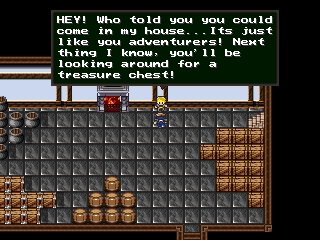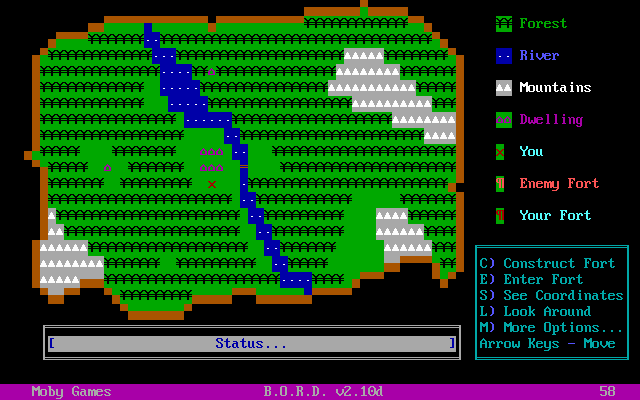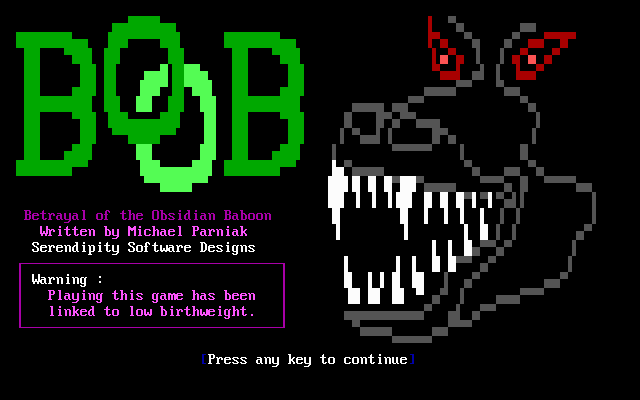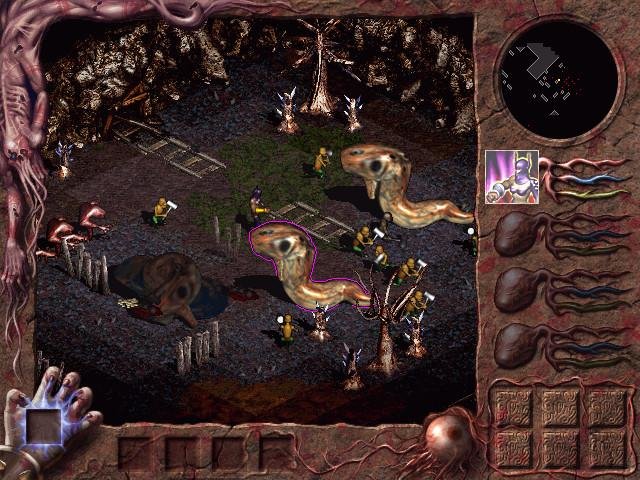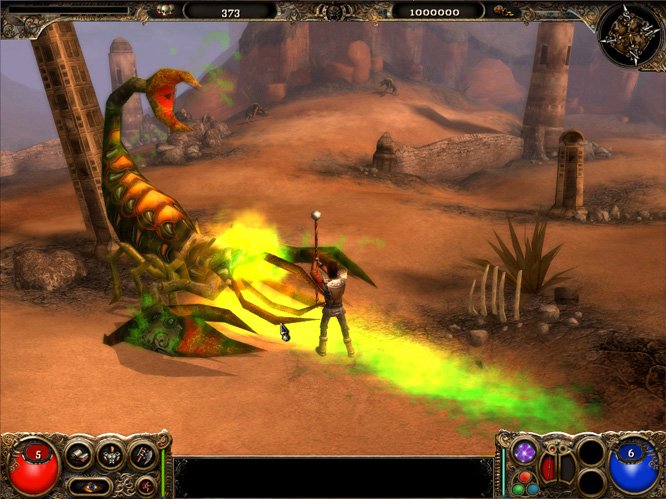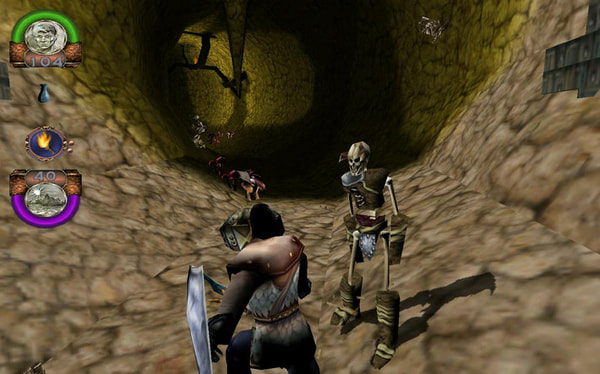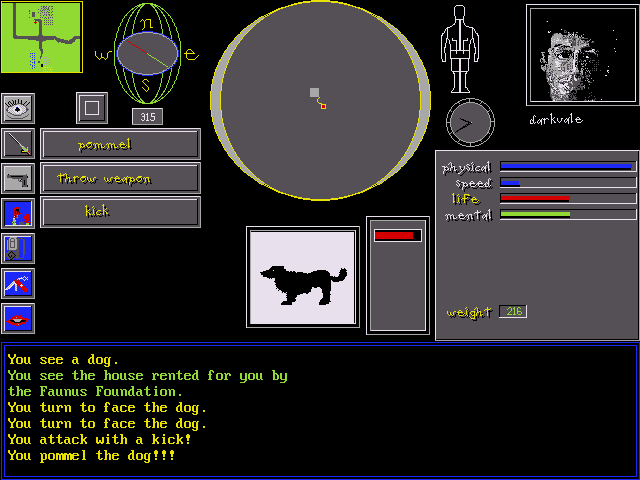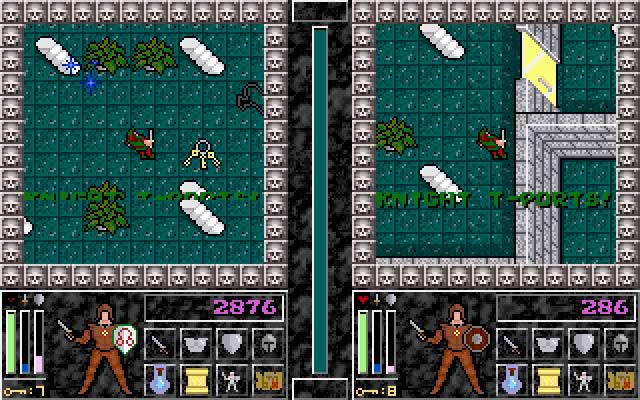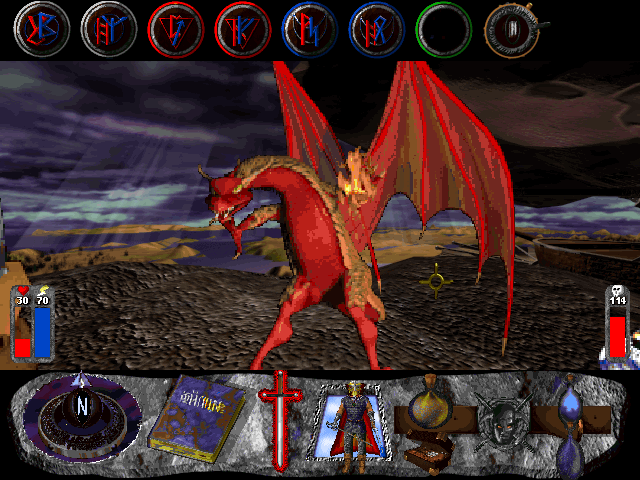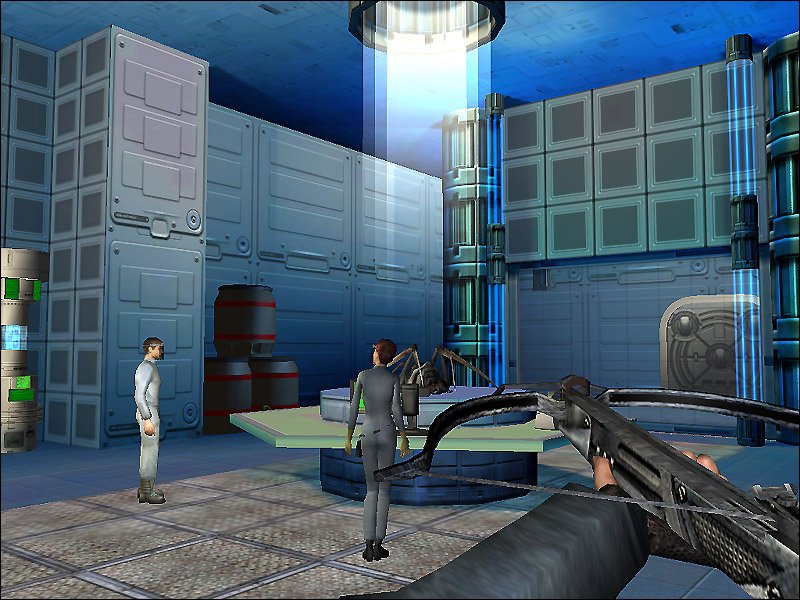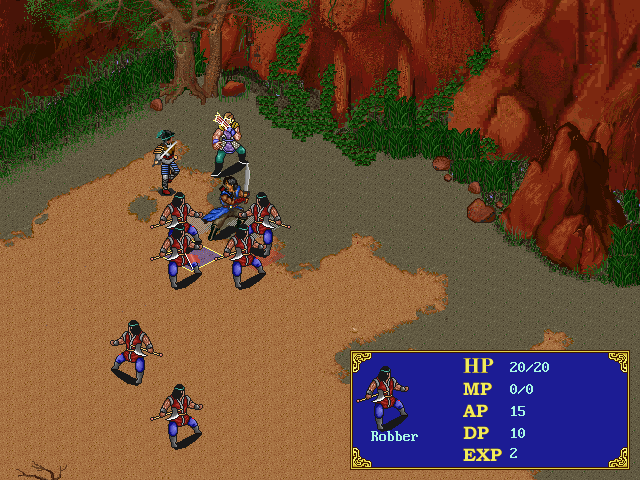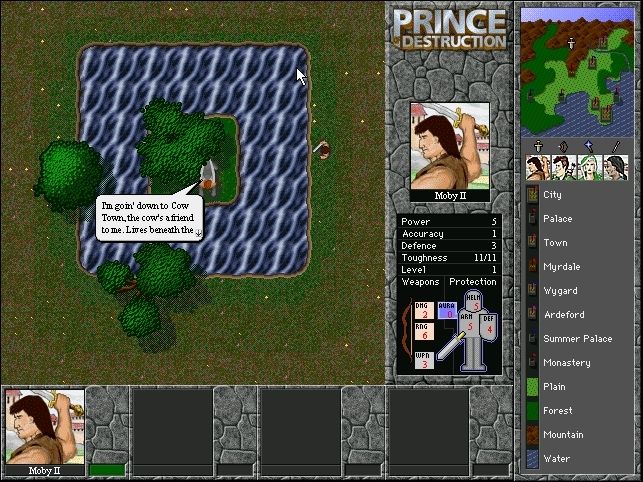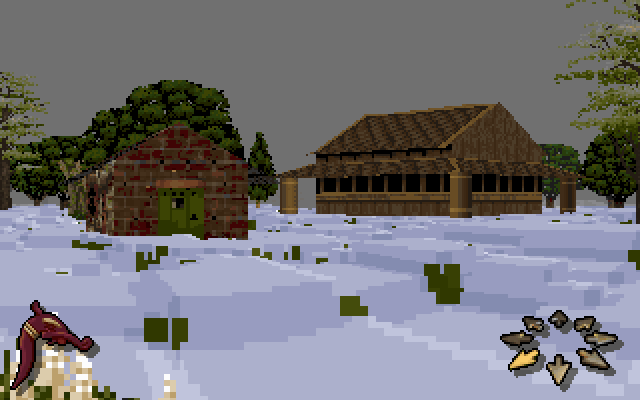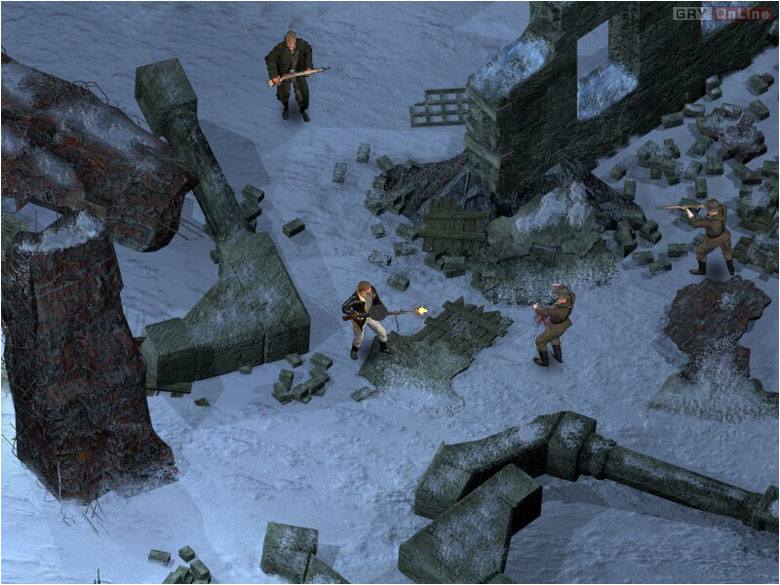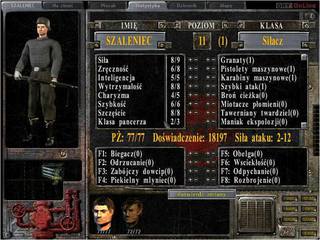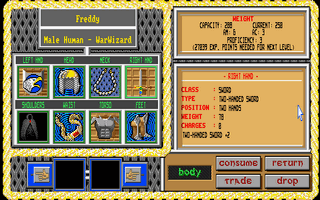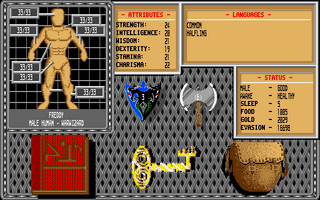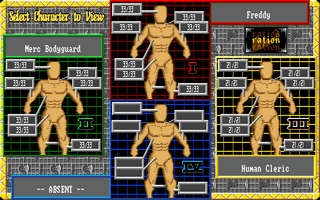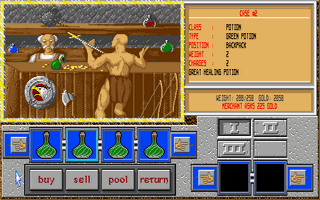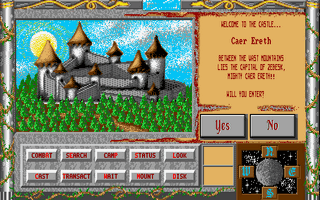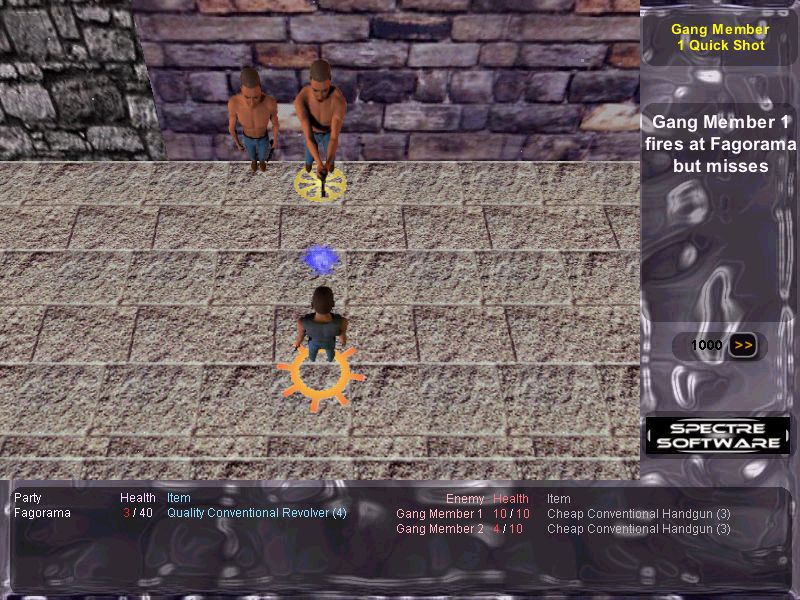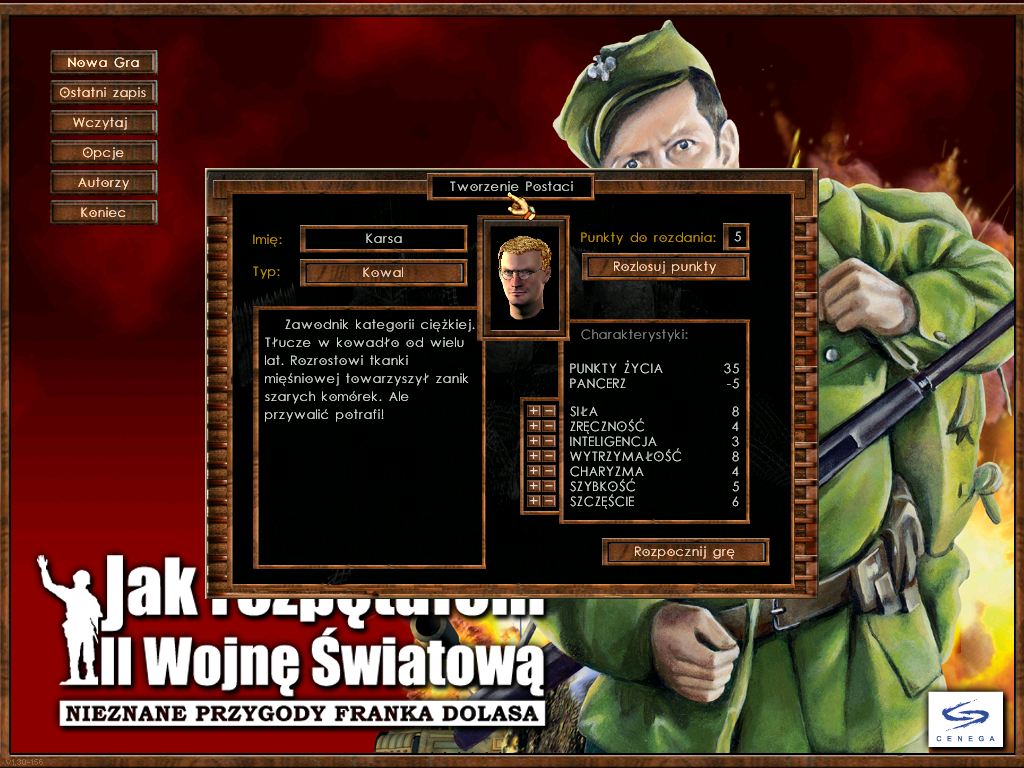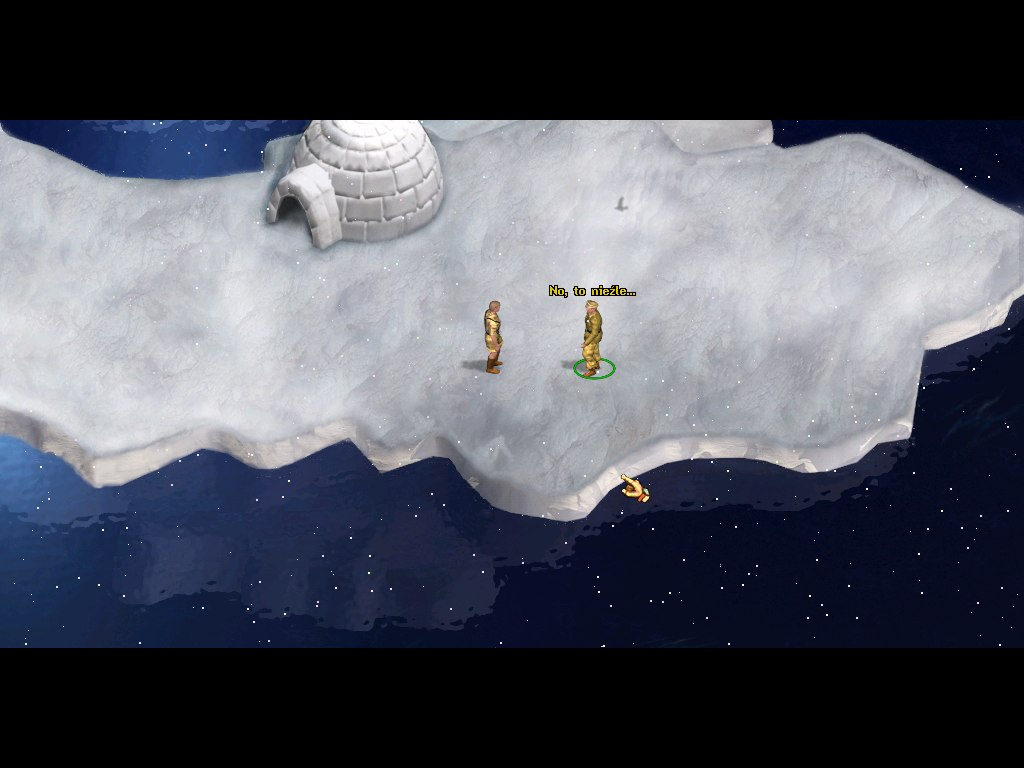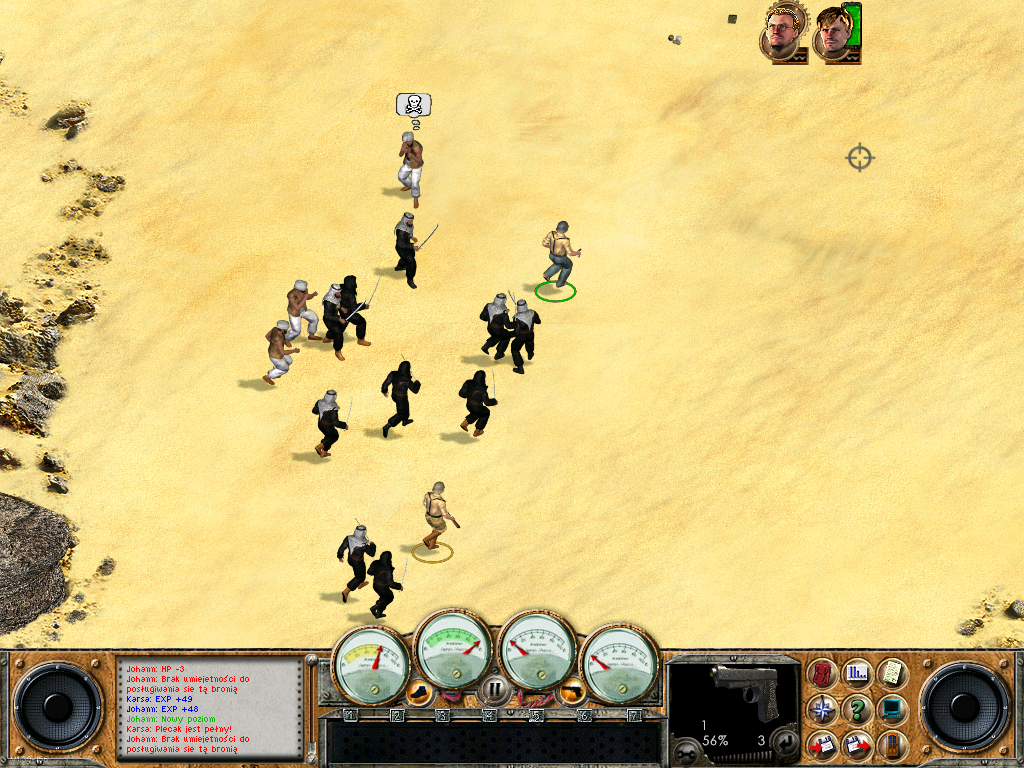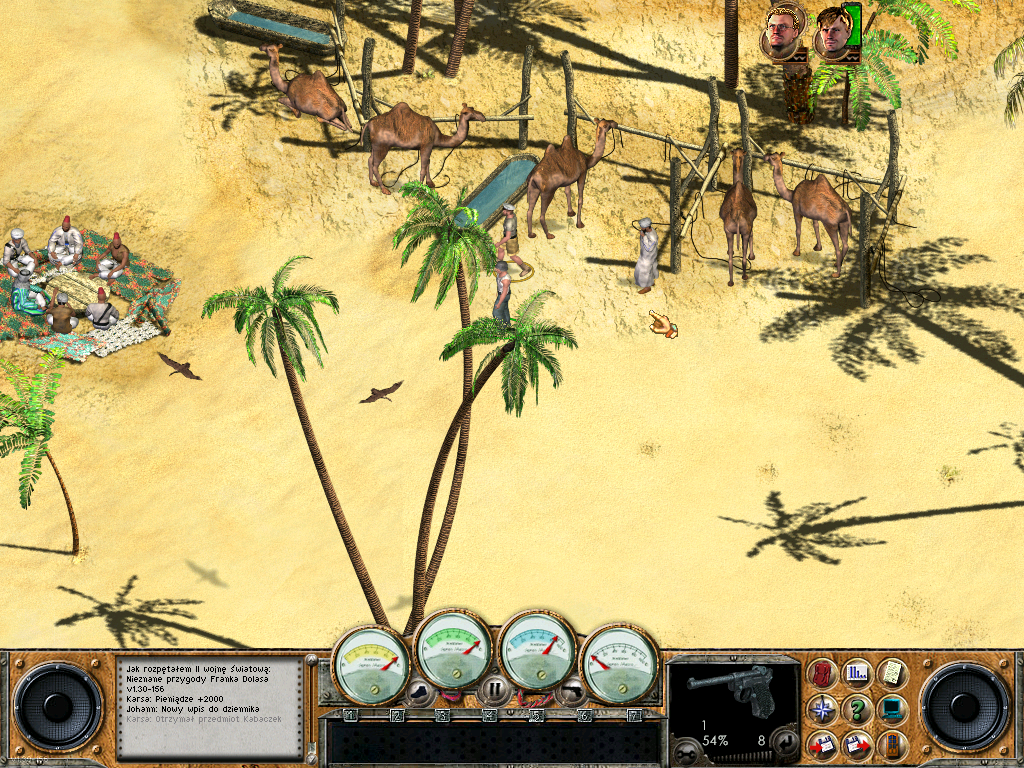After a brief, 3 months long pause, caused by the obligations of private life and lack of time for gaming, I come back to the "Really Obscure RPGs" thread with a review of Gorasul: Legacy of the Dragon! I finished the game yesterday and had some time to gather my thoughts. So, here it goes.
Gorasul: Legacy of the Dragon is a game made by a German studio and released in November 2001. It is one of the few games that can be considered as clones of Infinity Engine RPGs. It was always surprising to me that Baldur's Gate and Icewind Dale franchises, while successful, did not spawn more clones. Diablo had a lot of wannabes. Infinity games not so much. Gorasul, Prince of Qin, much later Legends of the Sword Coast. And that seems to be it? So, despite the mediocre reviews, I decided to try Gorasul.
The intro is nothing special, but neither was the original Baldur's Gate one. It presents the barebones story just fine. A baby is left in front of a house. He is later taken care of and educated by a dragon. Several decades later, the world is invaded by demons and our PC, now a grown man, named Roszondas is one of the champions in the war against them. However, he is slain. And that's it. Basic character creation (in which you create both your PC and his special weapon) and the game begins.
And it fucking begins in style. You wake up without any memories, in a strange, alien place, surrounded by undead. Yes, it begins like Planescape Torment. Well, not quite. The undead are aggressive, and you need to fight them. And the 'morgue' seems more like a laboratory of sorts. But there is Morte! In this role, your weapon, given to you by the same god that ressurected you after 10 years, because the world (Gorasul) needs you again.
First location,
the morgue (actually, Roszondas' tower):
As I said, the character creation is quite basic, but can take some time. You choose one of several professions: fighter, magician, judge of swords (Paladin), banisher (magician more suited to summoning monsters), cleric, scout (Ranger). You set 5 basic stats: strength (influences melee damage, unfortunately does not influence carry weight), dexterity (chance to hit and to evade hits), endurance (hit points), charisma (how NPCs perceive you, completely useless, I never place any points in it and had no problems with interactions) and intellect (mana points and how fast they are replenished). You can also increase attack or defense (working similar like dexterity). However, being a pupil of a dragon, Roszondas inherited several dragon skills , which you can also increase. They are: Dragon sight (the range of sight), Dragon strenght, breath and fear. The last three are combat abilities that activate when Roszondas is close to death. Then all the shit happens. His blows become much more powerful, and aura of fear makes lesser enemies flee and fire breath kills the rest. It can make wonders when you need it. Later you create your special, thinking and talking weapon. You can choose what will it be (a dagger, sword, bow, or something else; each type of weapon has different experience level requirements, and also enemies he loves and hates). Your weapon also has 5 stats, 4 of which you can shape. They are: ability to strike, acquire critical hits, replenish your mana, oppose weapon damage. The last one is "ego" and it increases with experience levels.
Character sheet looks like this (presenting dragon abilities, interchangeable with stats):
The weapon stats sheet looks like this:
So, the weapon starts talking to you and becomes your first companion. You will meet more on the way, but they are not very memorable. Nothing compared to guys and gals from BG or BG2, not to mention Planescape Torment. When you leave your tower, the map of the world appears. The game world is composed of a set of islands, two large ones and several smaller ones.
Part of the game world:
Despite a feeling of choice you quickly learn that it is an illusion. The game is quite linear, you rarely have more than two or three locations to go to, appearance of the next ones is triggered by specific conversations or meeting new companions. Hence, you are lead along the way invented by the developpers. So, you explore the world, solve quests, gather clues concerning the world that has quite change during your decade long death (not to mention you have amnesia, so you need to learn a lot again - that's how they justified the fact, that the former champion of humanity starts as a complete wimp). Soon you learn that the islands are covered by a "soul net" which does not allow the souls of the diseased to reach heavens - they come back from the graves as undead. To break the soul net you need to create a circle of five powerful mages. Roszondas is the first one (despite the fact that you can make him a fighter or a scout...), the four others you need to find during your journeys...
I will not spoil more of the story (you learn about the soul net after 1 or 2 hours). You will travel to different parts of the world, meet many of its generic races and have numerous typical adventures (clear the mine, catacumbs, graveyard etc). The world is quite vast but unfortunately poorly described and quite shallow. The lore is somewhat lacking, despite books you can read in several libraries and the monster compendium that also offers some info about the locations. What starts like Planescape Torment quickly descends into a typical fantasy story about a guy fighting undead/demons/evil wizards/worshippers of an evil god. The quests are also very linear and can be achieved in one way only. There is almost no choice and consequence. Any immersion that could be built is ruined by German efforts at humor and from time to time by a misguided breaking of the fourth wall.
You will spend most time exploring the maps, solving the riddles and fighting. At the beginning of the game you can choose the difficulty of fights and riddles and it shapes your experience. For example, if you choose hard riddles you need to type the responces yourself. If you choose medium, you can choose among several options. Battles are usually quite easy, but there are several difficult encounters, especially with one nasty banshee and several angry lindworms. Unfortunately dragons are complete pussies here. You face 2 or 3 of them and usually they go down without much of a fight. If you create a magic user, like me, the early game might be more challenging, because you need to kite a lot, while your mana replenishes (the first companion you meet is also a spellcaster, so until later time you have no meaty tank to hold the enemies in place). Later it becomes a walk in the park. Except for the fucking banshee that can really get on your nerves.
Despite a paper-thin story and world creation, the production values are quite good. The visuals are nice, some locations look atmospheric and nice:
The spell effects are nice, I think nicer than in the original BG (I know, it was published 3 years earlier). The cutscenes are acceptable for time of the production of the game. The music, while forgettable, does not offend the ears. It is quite obvious that they planned more content (locations of the first island are much more numerous and closer to each other, than on the second one) and needed to cut corners in the end. That's perhaps why the endgame feels very rushed. A pity, because the engine and the RP system could support a much better game than the one that we finally got.
The game takes about 30 hours to finish, and I was not bored during this time. However, my enjoyment could be much greater if the developpers created a better product. I played a heavily patched version (1.06) and still had to deal with constant CTDs. In some battles I had to change tactics because casting some spell or going melee caused a repeated crash. Fortunately, each time I managed to advance despite the programmers poor job. The translation from German to English was quite a weak one (but the first translation, shipped with version 1.0 was an atrocity, from what I've heard, they changed it completely in the patch).
Gorasul is an uneven experience. Sometimes it charms you, sometimes it irritates you, sometimes it makes you sad for the lost potential and wasted effort. There are really good ideas here (like the companion weapon, which is btw the only "real" companion in the Baldur's Gate sense, one that has mind of his own, initiates conversations and has a strongly defined character), but they are buried under a lot of poor design decisions. It can only be honestly reccomended to people craving an infinity engine clone game, who completed all the real infinity engine games 10 times already and do not need the 11th run. Others would propably do best to avoid it.
So, with this review the thread is back to life. If you have ideas of obscure RPGs, bring them on! Propably I will post some myself during the weekend. And soon I will undertake a new obscure challenge. I'm considering Heath: the Unchosen Path (Russian Golden Land) or Metalheart: Replicant's Rampage.










